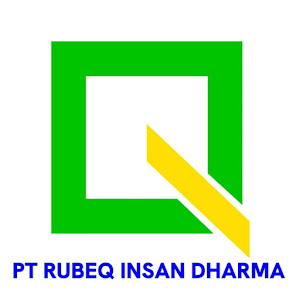JatimVoice.com – Sakban Rosidi, an academic from Universitas Islam Majapahit (UNIM), has an interesting take on the current state of education in Indonesia. As we mark National Education Day (Hardiknas), he says society is essentially faced with three options: celebration, ceremony, or reflection.
Sakban, who serves as Vice Rector for Information Management, Planning, and Development at UNIM Mojokerto, believes that if people still care about national education, then the best way to commemorate Hardiknas is through reflection and introspection.
"In essence, there are three ways we respond: celebration, ceremony, or reflection. Celebration and ceremony can’t really be done in isolation. So, if we still care about education, we should go with reflection and self-examination. When educators are alone, they naturally turn inward and reflect. And if that reflection leads to action, then we get praxis—an ongoing cycle of action and reflection, just like Marx and Freire described," he wrote in a statement received by the media on Friday (May 2, 2025).
He pointed out that every human effort is bound to face paradoxes—situations where our actions can end up producing results that contradict our intentions. In fact, paradoxes are like a hidden nemesis, waiting to undo our progress.
"It’s easy to forget that paradox is everywhere. Ivan Illich, Erich Fromm, John Naisbitt, and Arthur Mosher all talked about this in their works. What’s surprising is that all of them, in different ways, echoed Marx’s early thoughts in Economic and Philosophical Manuscripts from 1844," he said.
Sakban highlighted one of Marx’s more striking ideas: “They want production to be limited to useful things, but they forget that the production of too many useful things results in too many useless people.”
He explained how this plays out today—farm machinery pushing out farm laborers, ATMs replacing bank tellers, self-service machines replacing toll and parking attendants, online shops and ticket apps taking over retail jobs, even SKM (machine-rolled clove cigarette machines) affecting manual laborers. And in the future, self-driving cars could edge out drivers and even transport business owners.
How This Relates to Education
As a Philosophy of Education lecturer at Universitas Insan Budi Utomo (UIBU) in Malang, Sakban argues that modern schooling can sometimes actually hinder real learning.
Self-taught learners are often dismissed or underestimated. Learning has turned into just checking off institutional assignments. Tests and grades dominate, leading to what he calls “testomania” and “quantophrenia”—obsession with tests and numbers.
According to him, the natural curiosity and investigative spirit that should drive learning and research have been pushed aside.
“Just like how medicine can become a 'medical nemesis', schools have become a new kind of religion that threatens the essence of learning. In medicine, there’s the concept of iatrogenesis—harm caused by the healer. In education, intervention can backfire too, causing students to lose the will to learn,” he explained.
To him, what’s really problematic is how both students and parents are starting to lose a sense of responsibility in education. Policies like compulsory schooling, automatic promotion, free tuition, free uniforms, and recently free meals, have created a kind of educational iatrogenesis. Students aren’t challenged, becoming soft, whiny, and unmotivated.
“It may seem easier for parents to send their kids to school, but the flip side is we’re building families that are increasingly dependent—and that’s a future burden for the country. Our biggest threat might just be the crumbling of resilience, at a personal, family, social, and maybe even national level. Our current education system clearly isn’t aligned with Bung Karno’s Trisakti vision: political sovereignty, economic self-reliance, and cultural identity,” he said.
Proposed Solutions
Sakban admits that his solution might seem dark—and definitely not popular. Politicians, in particular, would likely avoid it because it doesn’t sell easily.
Why? Because it involves making students take full responsibility for their learning journey. The evaluation system should push them to become more resilient by learning from failure, bouncing back, and fighting onward.
"Parents need to reclaim their role in nurturing and funding their children’s education. And everyone should be responsible for their own health and fitness. Honestly, it’s a bit of a bleak outlook," he said.
Still, he offers an alternative—embracing different models and paths of learning, as long as we ensure that people still gain essential lifelong learning skills. These include abstraction, literacy, numeracy, imagination, and creativity.
“Homeschooling and non-formal education shouldn’t just be ‘support systems’ for traditional schools. They can become real solutions—especially when schools fail to help kids grow into mature, well-rounded adults. It’s all about developing thoughtful individuals who pursue the good life and contribute to meaningful living,” he concluded.




